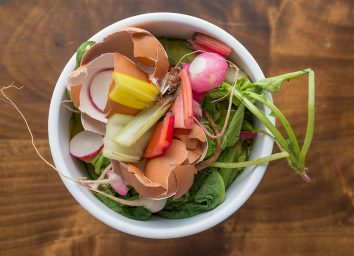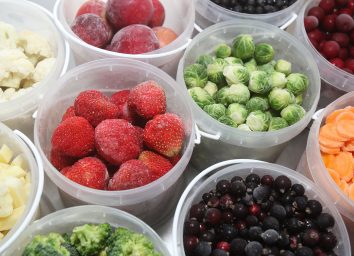Just How Long These 9 Common Foods Last
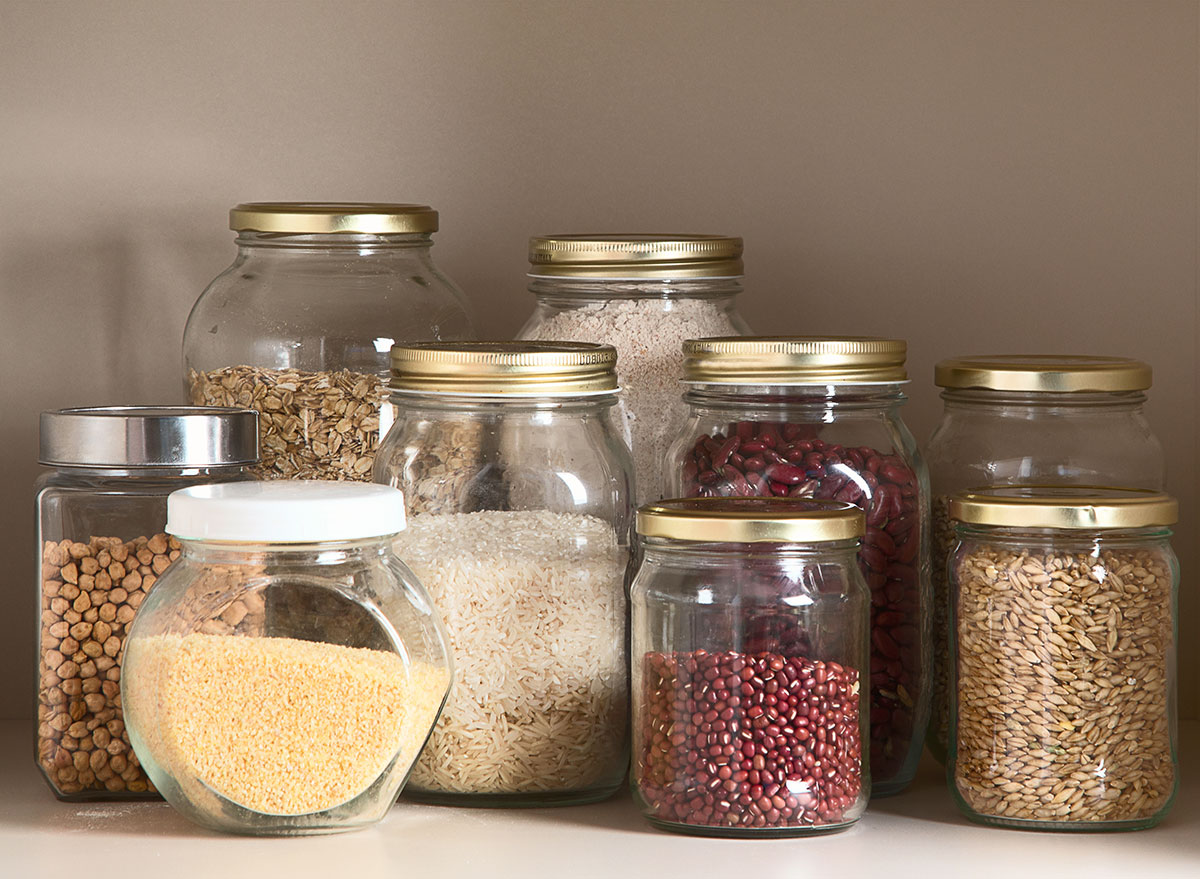
Picture this: you're rummaging through your pantry, and you come across a few stray apples. "When did I buy these?" you ask. You don't remember. There's no expiration date, so how can you tell if they're still good? Of course, you should use the sniff test and your best discretion (there are some foods you should not eat if they have mold and some that are okay). But you can also look up how long common foods last to have a better idea of what timeframe you're working with.
Whether this helps you plan out how far in advance you should purchase some foods (like leafy greens) before you plan to eat them or you want to check to see how much longer the food you already have will stay good, we have the answers. And if you're wondering if that food you have in front of you is okay to eat, you're probably looking for these 13 Foods That Are Still Safe to Eat After the Expiration Date.
Condiments
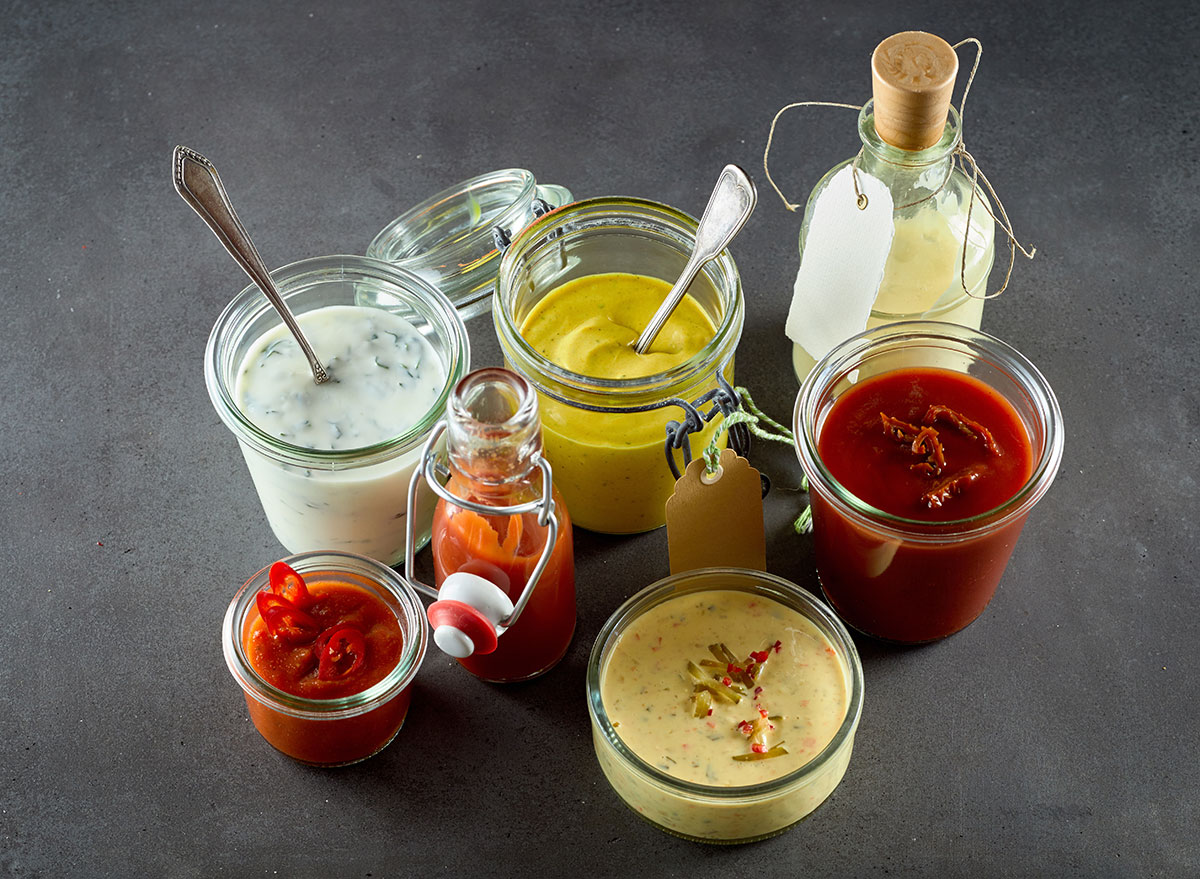
"Condiments have a fairly long shelf-life of several months and some even resist spoilage for years," Norton says. "These products are often highly processed, which removes microorganisms and introduces strong preservatives that prevent contamination."
Apples
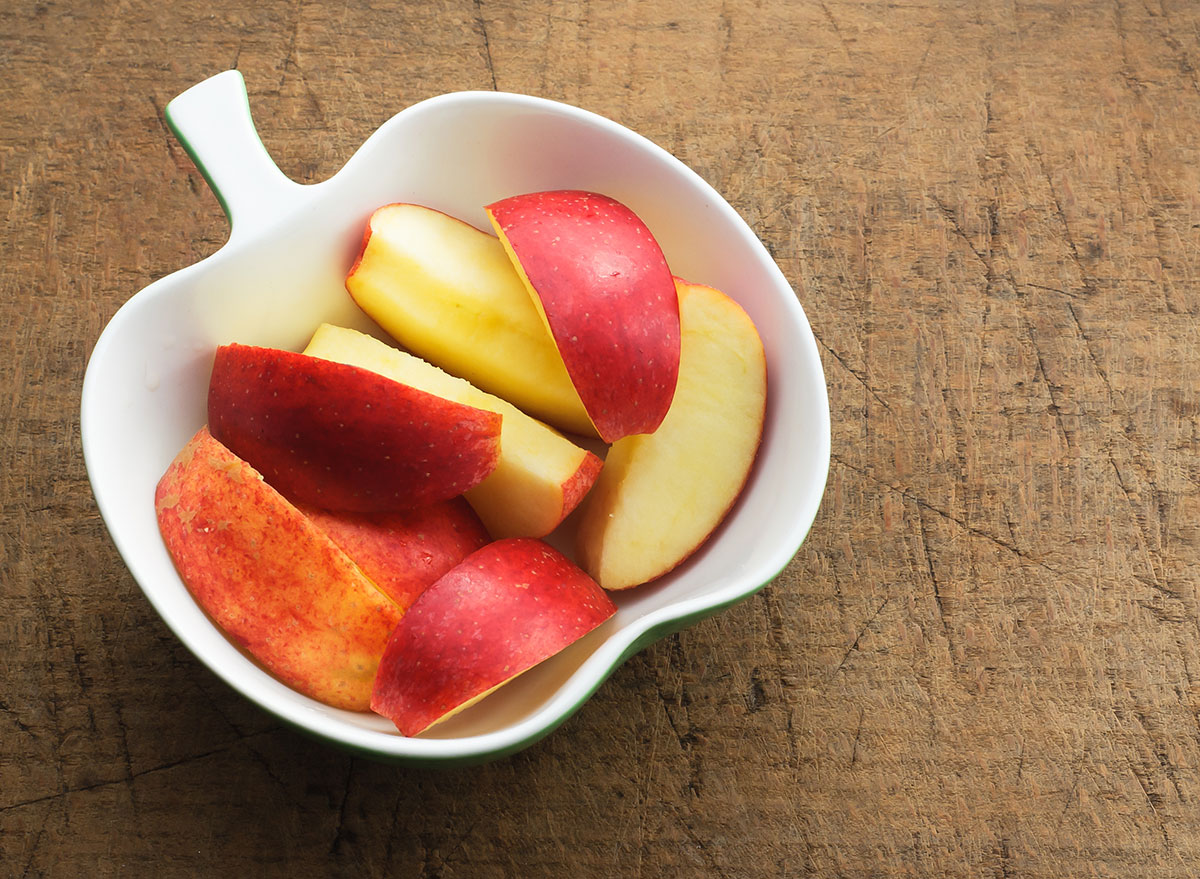
Registered dietitian Kristie Holt, RD, LDN notes that these fruits can last three weeks in the pantry and four to six weeks in the refrigerator. When frozen, apples can last for about eight months.
Dairy

"The average shelf-life of dairy products is 12 days to six weeks. Of course, that depends on what product we're talking about," says Sofia Norton, RD, a registered dietitian at Kiss My Keto. "Pasteurized milk has the shortest shelf-life of up to two weeks, while ice cream can last up to six months. Fermented dairy usually has a longer shelf life since the lactic acid bacteria in it slow down spoilage."
Fish
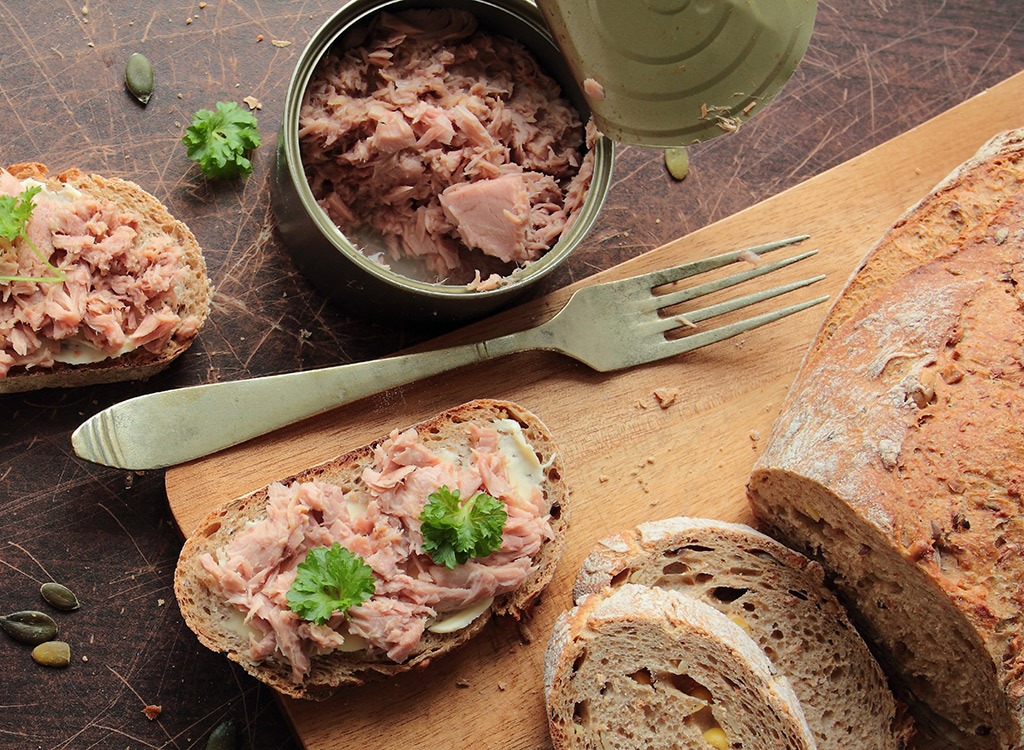
"Canned fish can sometimes last for years, but fresh fish usually hold well for up to two days," Norton says. "Of course, this is just a general rule of thumb as some fish can last a bit longer."
Fruits
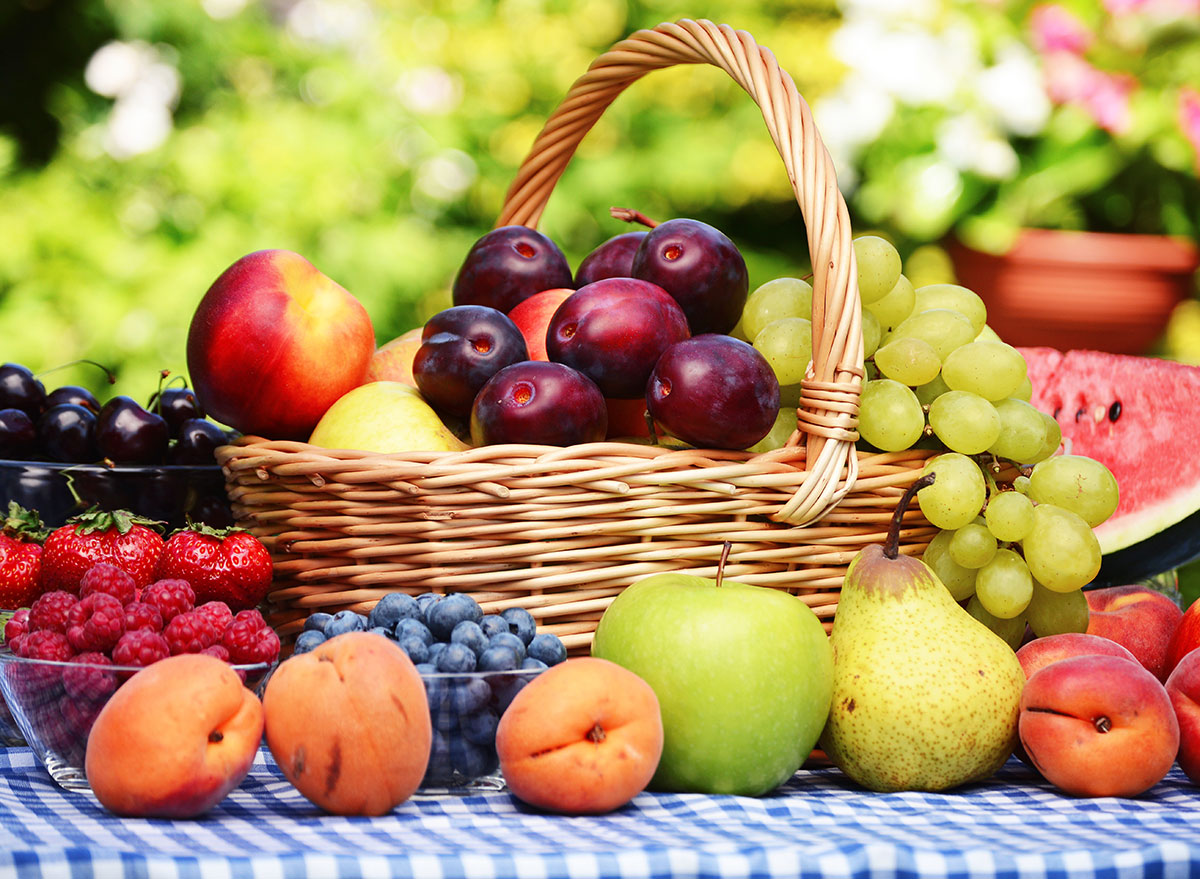
Per Norton, the shelf-life of fruit depends on how various fruits are processed and stored. "Microorganisms and natural enzymes present in fruit cause them to decay over time. You can slow this down by keeping some fruit in the fridge," she says. "Most fruit will last two to seven days on the counter or seven to 30 days in the fridge. Only bananas shouldn't be kept in the fridge since this leads to faster browning."
Grains
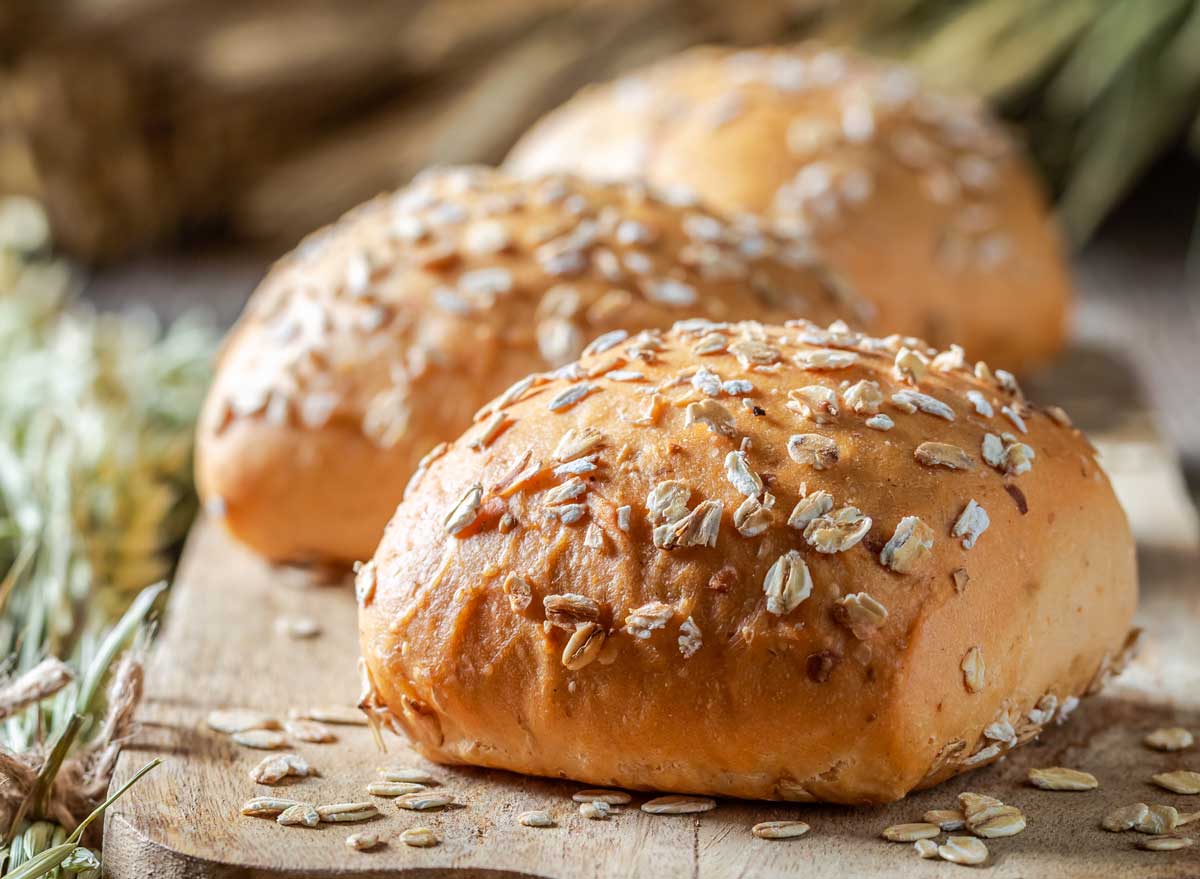
According to Norton, whole and intact grains can last up to six months, but flours made with whole grains last much shorter—about one to three months in a cool and dry pantry. "When milling grains, the protective outer bran is broken, which exposes the grain's oils to oxygen," she says. "This leads to rancidity over time."
Greens
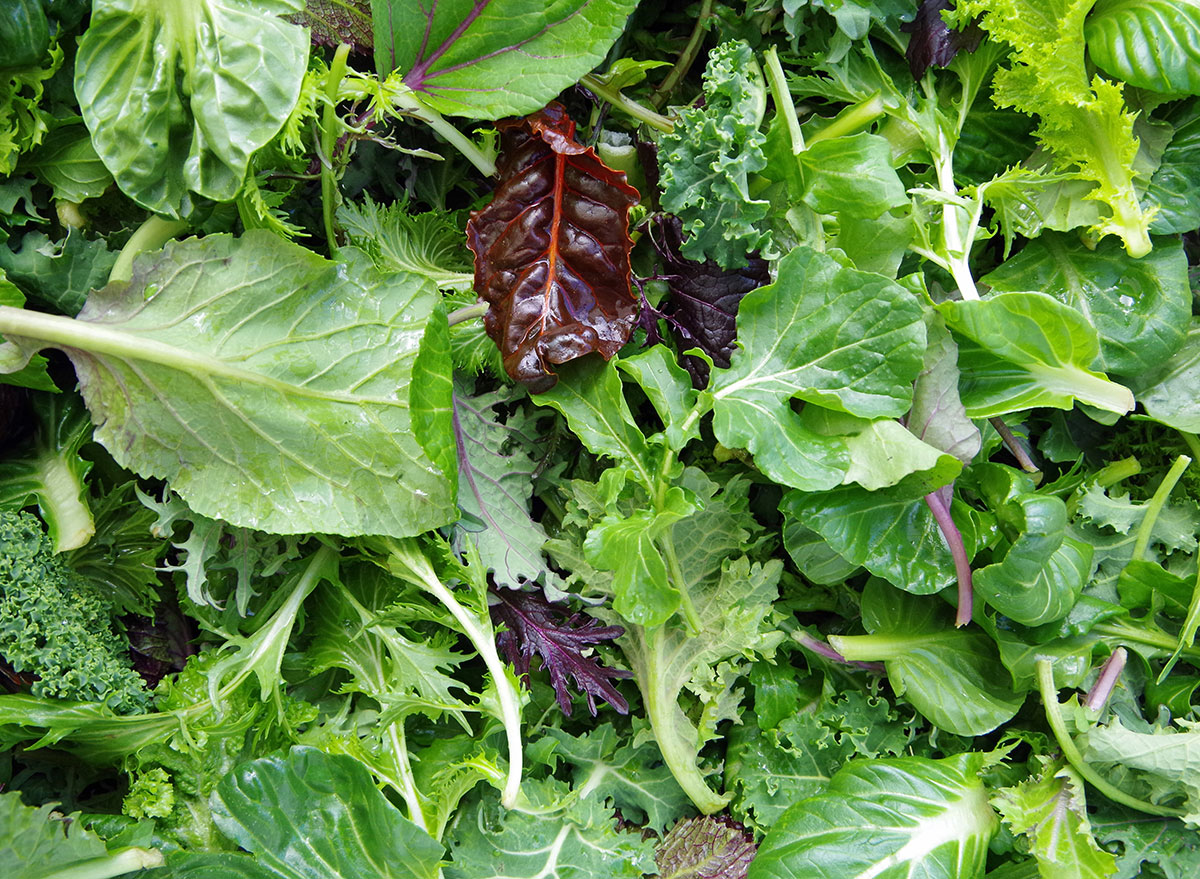
"Most greens can last three to seven days in the fridge, making them some of the most perishable food items," Norton says. "Leafy greens have a delicate structure that makes them prone to degradation when exposed to cold, air, sunlight, and so on."
Meat and poultry
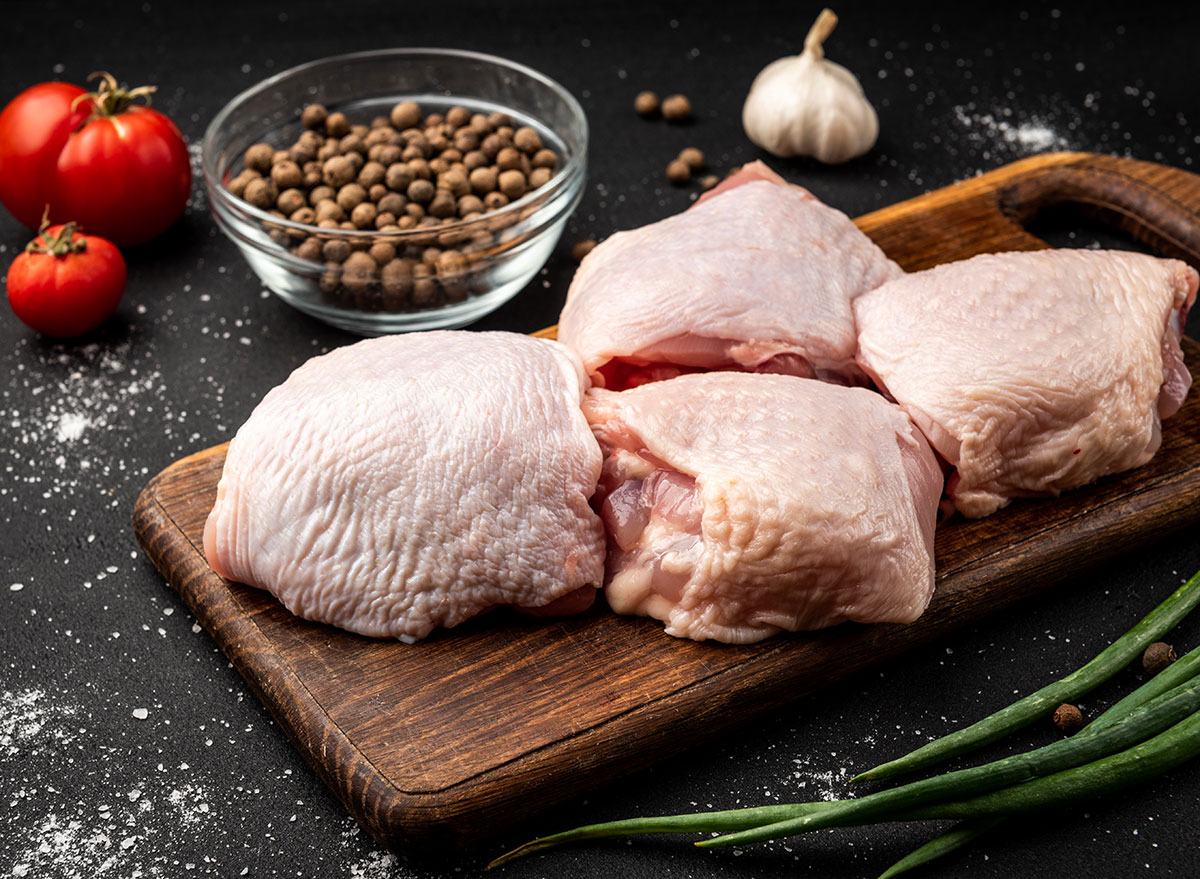
"Meat and poultry contain bacteria that break down protein as time goes on. These items are highly perishable and can be extremely unsafe to eat once way past their expiration date," says Norton. "In the fridge, both can be safe to consume for up to five days after packaging—of course, this can vary among different cuts of meat. If you want to extend their shelf life, freezing can keep them edible for up to four months."
Other vegetables
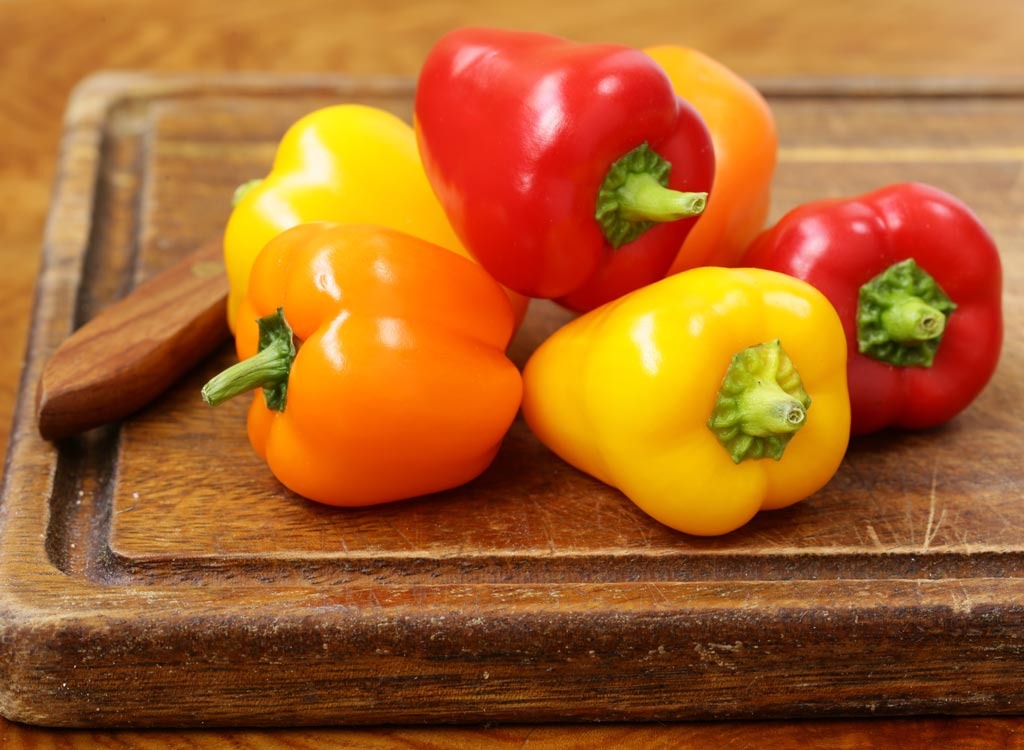
"Bell peppers, zucchini, broccoli, carrots, and other veggies should be kept in the fridge," Norton says. "These items last longer than leafy greens and fruits. For example, celery can last three to four weeks in the fridge. Frozen veggies can even be safe to consume for up to 12 months." If you want to freeze the fresh veggies you already have, read our guide: How to Freeze Fresh Fruits and Vegetables Properly.


